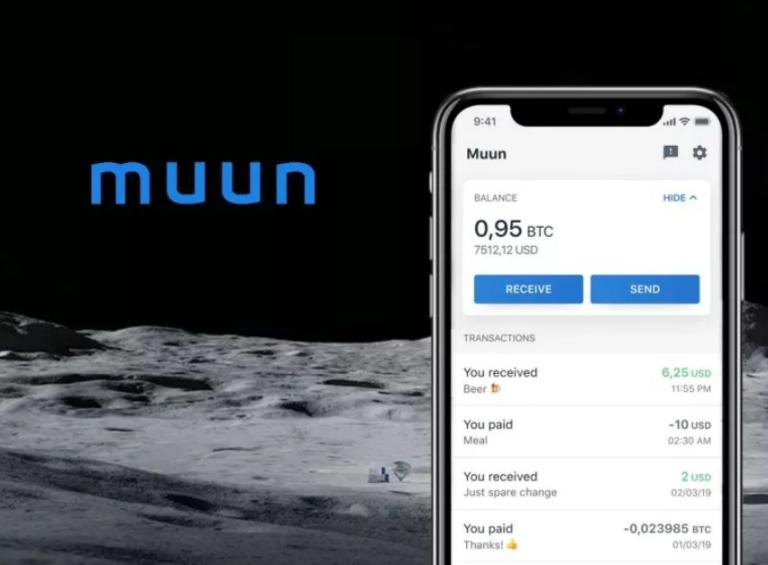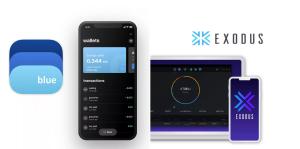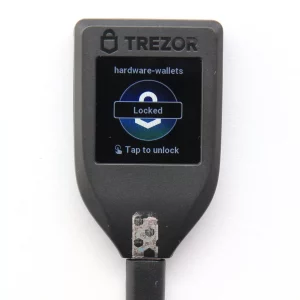Muun and BlueWallet are two popular open source, noncustodial Bitcoin wallets that support both the Lightning Network and on-chain Bitcoin transactions.
Non-custodial Bitcoin wallets, like Muun and BlueWallet, give you full control over your private keys and funds. Custodial wallets, on the other hand, hold the private keys for you.
Differences between Muun Wallet and BlueWallet
Both wallets offer a variety of features and benefits, but there are also some key differences between them.
Ease of use
Both Muun and BlueWallet are available on Android and iOS, with BlueWallet also available on macOS desktops and laptops. Muun is available in English and Spanish, while BlueWallet is available in over 30 languages, including English, Chinese, Japanese, Portuguese, Spanish, Indonesian, Russian, Ukrainian, Italian, German, Swedish, Norwegian, French, Danish, and Turkish.
Muun and BlueWallet are both relatively easy to use, but Muun is generally considered to be more user-friendly. It has a simpler interface and fewer features, which can be especially helpful for beginners. Muun also uses a single balance for both on-chain and Lightning Bitcoin, which makes it easier to manage your funds.
Compared to Muun, BlueWallet’s features can be more complex for beginners. For example, instead of a single balance, BlueWallet requires you to create separate wallets for Bitcoin and Lightning, and if you create a Lightning wallet, you will also need to connect to your LNDHub, a plugin for Lightning Nodes. It also allows you to create multiple wallets, including a Vault, a 2-of-3 multisig wallet for storing large amounts of Bitcoin.
Other advanced features that might not be the best fit for beginners include connecting to an Electrum server and choosing advanced wallet options like SegWit HD (BIP84 Bech32), SegWit HD (BIP49 PS2H), and SegWit (P2SH). These advanced wallet options can involve complex technical details like transaction fees, privacy considerations, and compatibility with other services.
In summary, Muun is a good choice for users who are looking for a simple and easy-to-use Bitcoin wallet. BlueWallet is a good choice for users who need more flexibility and advanced features, such as the ability to create multiple wallets and use a multisig wallet. However, this flexibility comes at the cost of a more complex interface. It’s best to stick with the simpler options when starting out with Bitcoin to avoid any confusion or potential risks.
Muun Wallet Fees vs BlueWallet Fees
Muun and BlueWallet both charge fees for transactions. However, Muun’s fee estimator allows you to select from various transaction fee categories based on your desired speed for Bitcoin transfer. BlueWallet does not have a fee estimator, but it does allow you to set custom fees. It gives you the ability to bump or cancel sent transactions with Replace-by-fee (RBF) or with Child-pays-for-parent (CPFP) feature.
Features
Both wallets support Lightning for faster and low cost transactions, SegWit (Segregated Witness), a protocol improving the scalability and efficiency of Bitcoin transactions, and hardware wallet integration. However, Muun is not a Lightning wallet in the traditional sense, as it does not manage its own Lightning channels. Instead, Muun uses submarine swaps to facilitate Lightning payments.
Submarine swaps are a type of on-chain transaction that allows users to exchange Bitcoin on the blockchain for Lightning Network payments, without the need to open or manage a Lightning channel. While submarine swaps are convenient, they are also more expensive than using Lightning channels directly, as they require an on-chain transaction for each payment.
Muun’s legitimacy as a Lightning wallet has been a subject of debate within online bitcoin communities. To clarify this matter, we reached out to Muun and inquired about their status as a “real” Lightning wallet. In response to h17n, Muun confirmed that they currently use submarine swaps for Lightning payments and do not hold off-chain funds at this time. However, they recognize that submarine swaps are not a sustainable solution for them, and they are actively working to transition to an off-chain framework that prioritizes user security without any compromises.
Generally, Muun has fewer features than BlueWallet. BlueWallet is more advanced than Muun in terms of features. BlueWallet advanced features, which are not found in Muun wallet include the following:
- Electrum server Support: Connect to Electrum server for improved privacy.
- Multisig Support: With BlueWallet multisig, you can require multiple signatures for transaction authorization, enhancing security.
- PayJoin Support: Combine transactions with other users to reduce fees.
- Watch-only Support: View wallet balances and transactions without the ability to spend funds.
- LNURL Support: Receive and send Bitcoin payments using a static Lightning address.
- Replace by Fee (RBF) Support: BlueWallet RBF feature allows you to cancel pending transactions and replace them with new ones with higher fees.
- Batch Transactions: Combine multiple transactions into a single batch to reduce fees.
- Hardware Wallet Integration: Supports a variety of hardware wallets, including Coldcard, Ledger, Passport, SeedSigner, and Trezor.
- Import Wallet Standards: Import wallets from various other Bitcoin wallets, such as Electrum.
- Duress wallet: Allows you to define a different password which will decrypt a “fake” wallet set up in any situation where you are forced to disclose your access or for when you don’t want to show your real wallet.
BlueWallet’s advanced features, surpassing those of Muun wallet, cater to advanced users seeking greater privacy, enhanced security, and flexible control over their Bitcoin transactions.
Is Muun Wallet Safe? Is BlueWallet Safe?
Both Muun and BlueWallet are generally considered to be secure wallets. Both are open-source software, making their codes publicly available for auditing by anyone. However, there are some key differences in how they handle backups and recovery.
Muun Wallet does not use a traditional seed phrase for backup and recovery. Instead, you can link your email address to your account and use it to recover your wallet if you forget your password. You can also create an alternative backup by writing down a code on paper.
If you need to recover your funds without using Muun, you can use the Muun’s Emergency Kit. The Emergency Kit is a PDF document that contains all the information and instructions you need to recover your funds, even if you lose your phone, forget your password, or experience other issues.
BlueWallet uses a traditional seed phrase for backup and recovery. This means that users need to write down their seed phrase in a safe place in order to recover their wallet if they lose it or their device is stolen.
Find out: Electrum vs BlueWallet
Muun vs BlueWallet
Here’s a table summarising our review of BlueWallet vs Muun Wallet.
| Feature | Muun Wallet | BlueWallet |
|---|---|---|
| Open source, Non-custodial | Yes | Yes |
| Seed Phrase Backup | No traditional seed phrase, uses email or alternative backup code | Traditional seed phrase for backup |
| Backup Recovery Options | Email or alternative backup code, Emergency Kit PDF | Traditional seed phrase |
| Fee Estimation | Yes | No, but allows custom fees |
| Lightning Network | Yes (via Submarine swaps) | Yes (Connect to own node or import Lightning wallet) |
| Languages Supported | English, Spanish | Over 30 languages, including English, Chinese, Japanese, Portuguese, Spanish, Indonesian, Russian, Ukrainian, Italian, German, Swedish, Norwegian, French, Danish, Turkish |
| Ease of Use | User-friendly interface, good for beginners | Some features can be complex for beginners |
| Tor Support | No | No |
| Multisig Support | No | Yes |
| SegWit | Yes | Yes |
| CoinJoin Support | No | Yes |
| Watch-only wallet, Duress wallet | No | Yes |
| LNURL Support | No | Yes |
| Replace by Fee (RBF) Support | No | Yes |
| Batch Transactions | No | Yes |
| Message signing | No | Yes |
| Built-in exchange | No | Yes |
| Hardware Wallet Integration | Yes (limited) | Yes |
| Import Wallet Standards | No | Yes |
BlueWallet vs Muun: Which wallet is right for you?
Muun and BlueWallet are both great open source, Bitcoin wallets with Lightning Network support, allowing for low-cost and instant transactions. They are also noncustodial, which means you have complete control over your funds.
If you’re seeking a straightforward and user-friendly wallet, available in both English and Spanish, capable of handling both on-chain and Lightning Network transactions easily, Muun is an excellent option. Particularly suited for beginners, Muun simplifies Lightning transactions by conducting them in the background through submarine swaps. In contrast, BlueWallet requires you to import an existing Lightning wallet or connect to your personal node for Lightning transactions, which adds a layer of complexity.
For beginners, starting with the most user-friendly wallet option in Bitcoin is key. This helps avoid confusion and potential risks while you get comfortable with the basics.
If you’re an experienced Bitcoin user and need more features, such as the ability to create multiple wallets, support for Multsig wallet, watch-only wallet, Tor, PayJoin, and batch transactions, BlueWallet is a better option for you. Moreover, it supports over 30 languages.
While Muun and BlueWallet are both secure hot wallets, for storing large amounts of Bitcoin, we recommend using a hardware wallet for enhanced security.



























